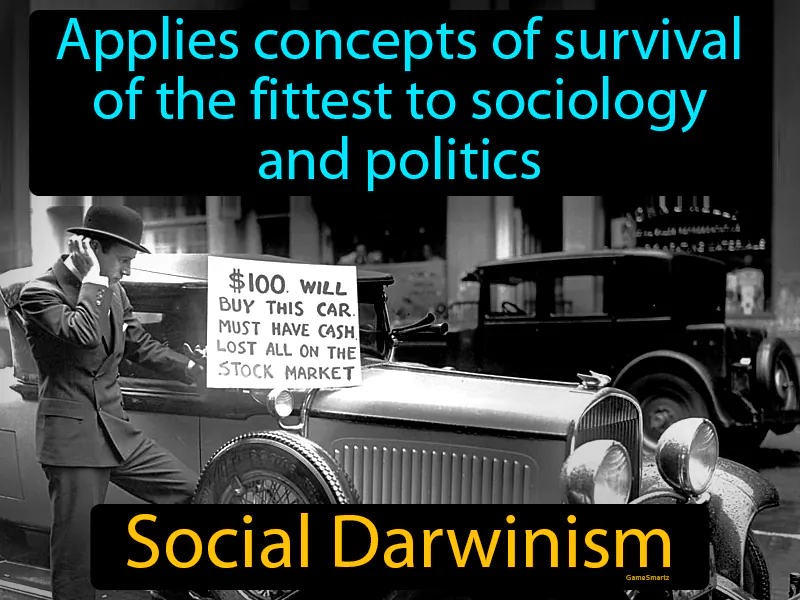Social Darwinism
Social Darwinism: Easy to understand
During the Industrialization period from 1870 to 1900, Social Darwinism was used to justify the success of big businesses and the wealth of industrialists, suggesting that their success was due to their inherent superiority. This idea responded to the massive economic changes and social inequalities caused by rapid industrial growth, reinforcing the belief that competition was natural and beneficial. It was important at the time because it provided a rationale for laissez-faire capitalism and minimal government intervention in the economy. Today, Social Darwinism still matters as it influences ideas about meritocracy and competition, suggesting that people succeed based on their abilities and efforts. For example, in schools, this can affect how students view their achievements, believing that hard work alone determines success, without considering other factors like access to resources or support.

Practice Version

Social Darwinism: Applies concepts of survival of the fittest to sociology and politics. Social Darwinism. In history, Social Darwinism is the idea that stronger people and groups naturally succeed over weaker ones, justifying inequalities.